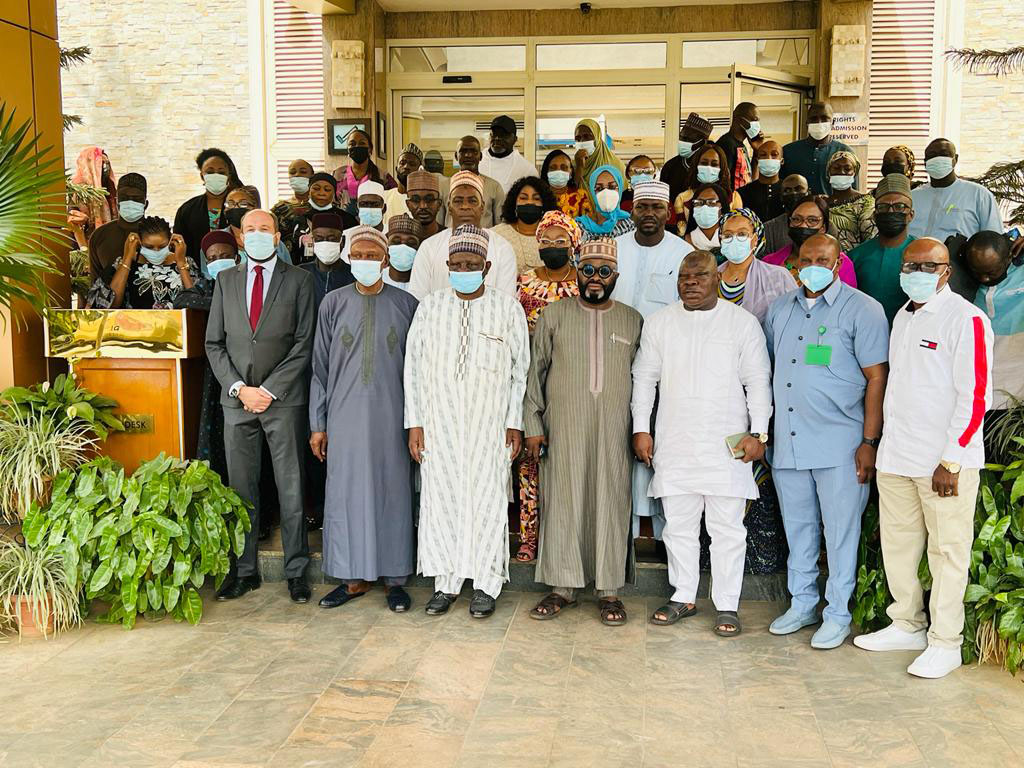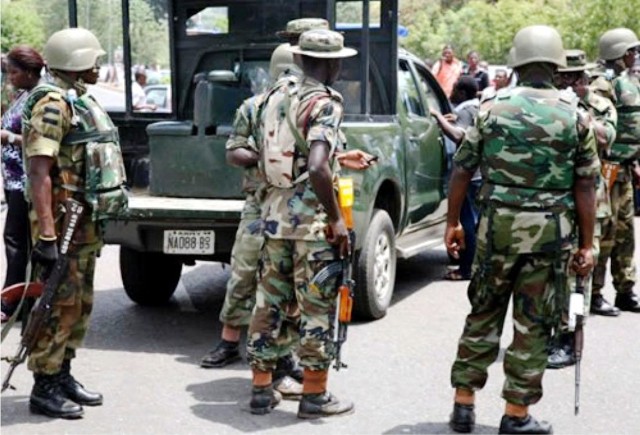Editorial
Ekiti Poll: Task Before INEC

There is palpable anxiety in Ekiti State as the governorship election will take place in the South West
state on Saturday, June 18, 2022. On that day, the Ekiti people will decide who will succeed Governor Kayode Fayemi, whose term ends soon. In the final list published by the Independent National Electoral Commission (INEC), 16 political parties will take part in the election, including 14 male and two female candidates.
A few of the parties and their candidates include Reuben Famuyibo of the Accord Party (AP), Oluwole Oluyede of the African Democratic Congress (ADC), Kemi Elebute Halle of the Action Democratic Party (ADP), Biodun Oyebanji of the All Progressives Congress (APC), Olabisi Kolawole of the Peoples Democratic Party (PDP), Segun Oni of the Social Democratic Party (SDP) and Ranti Ajayi of the Young Progressives Party (YPP), among others.
But despite the presence of more than a dozen political parties in the race, the governorship contest is actually a three horse race among the three most renowned parties in the state. They are the ruling APC, the PDP, which remains the dominant opposition party since it lost power nearly four years ago, and the SDP, a new participant in the power equation.
This development is a radical departure from the normal trend where the APC and the PDP had always emerged as the parties to beat in the governorship race, and most other elections in the state. But the threat posed by the SDP and its candidate, former Governor Oni, cannot be wished away as some people are staking on the party to probably spring incredulity by snatching away the saddle from the two leading challengers.
As the people of Ekiti prepare for the exhilarating election, it is expedient that the necessary atmosphere is set for the contest. Security agents and critical stakeholders should maintain the peace and stem any possible violence. Everyone has to recognise that elections come and go, but the state will remain.
Violence prior to, during and after the election is unjustified because the state is not at war. The kernel of election is to enable the will of the people to preponderate. Democracy is not about killing or bloodshed, it is about choosing willingly. Candidates must instruct their supporters to act in accordance with the law.
It is gratifying that the National Security Adviser (NSA), Babagana Monguno, has assured that the election will be free of malevolence. Speaking at the Inter-Agency Consultative Committee on Election Security organised by INEC, the NSA, represented on the occasion by Sanusi Galadima, explained that the security agencies were monitoring developments in Ekiti.
Our disquiet stems from the unhealthy role of security agents during elections since the return to democracy in 1999. While it is salient to note that the functions of security personnel are essential in elections, their abusive deployment to intimidate perceived oppositions creates a sense of insecurity itself. We implore them to do the right thing in Ekiti without prejudice. They should prevent human rights violations while at the same time helping to protect and preserve the sanctity of the entire electoral process.
Unfortunately, security operatives actively participate in and finesse the election process. They have also been involved in ballot theft and, of course, they have assisted politicians to espouse some unorthodox wonts. The trend is worrisome. We hope that steps will be taken forthwith to put an end to the situation before the international community takes a greater heed in it.
The sway of money in the country’s electoral process has thickened in worth in our political atmosphere, especially as reflected in the recent presidential primaries of the two dominant political parties. In our opinion, the usual hoard of money in exchange for votes should be discountenanced and halted. The high level of poverty ravaging the country notwithstanding, the electoral body, stakeholders and the anti-graft agencies should wage war against this act in Ekiti, and call on voters to desist from trading their mandates.
INEC cannot afford to fail. We hope the electoral umpire is fully predisposed to hold the first election in Nigeria since President Muhammadu Buhari signed the new Electoral Act into law, which legalises electronic transmission of results. The June 18 gubernatorial election has been deemed by many as a litmus test to ascertain the effectiveness of the newly amended Electoral Act. INEC, therefore, has to ensure the effective deployment of the Bimodal Voter Accreditation System (BVAS) for the election.
While the BVAS achieved reasonable success in the Isoko-South 1 Federal Constituency bye-election in Delta State, its deployment in statewide elections like the Anambra governorship and the Federal Capital Territory (FCT) Area Council was marred with widespread malfunctioning and other challenges, leading to the extension of voting time. Hence, the Ekiti election presents another occasion for the assessment of the functionality of the BVAS and the capacity of INEC to resolve all obstacles observed with its operations in Anambra and the FCT.
Moreover, the use of BVAS is incredibly crucial because the new Electoral Law provides for the deployment of a technological device for the accreditation of voters. Similarly, INEC’s guidelines have made it mandatory to deploy the BVAS as the device now plays a pivotal role in safeguarding elections and in guaranteeing that technical glitches do not disenfranchise any eligible voter who turns out to vote. The Commission is responsible for indemnifying that the BVAS functions optimally on the election day.
Furthermore, the election management body should carry out proper arrangements and make certain that personnel deployed to administer the poll are well-trained. There should be an early deployment of voting materials at the units to facilitate the timely start-up of the polls. The electoral umpire must assure that poll officers conduct themselves in a non-partisan and professional manner throughout the election process. This will bolster citizens’ confidence in the process and enhance participation.
INEC should recognise that Saturday’s election will also set the climate for a similar poll on July 16 in Osun State. Although elections have distinct peculiarities, we firmly believe that the outcome of the Ekiti ballot is likely to influence Osun’s poll in public perception. As candidates are emerging for the next year’s general election, the June 18 voting will open up the electoral space of what to expect in the campaigns and the contest next February.
Editorial
HYPREP And The Collapsed Water Tank

Editorial
Resurgence Of Illegal Structures In PH
Editorial
Certificate Forgery, Loss Of Public Trust

-

 Featured4 days ago
Featured4 days agoOil & Gas: Rivers Remains The Best Investment Destination – Fubara
-
Nation5 days ago
MOSIEND Calls For RSG, NDDC, Stakeholders’ Intervention In Obolo Nation
-
Nation5 days ago
Hausa Community Lauds Council Boss Over Free Medical Outreach
-

 Nation5 days ago
Nation5 days agoOgoni Power Project: HYPREP Moves To Boost Capacity Of Personnel
-
Nation5 days ago
Association Hails Rivers LG Chairmen, Urges Expansion Of Dev Projects
-
Nation5 days ago
Film Festival: Don, Others Urge Govt To Partner RIFF
-

 News5 days ago
News5 days agoNDLEA Arrests Two, Intercepts Illicit Drugs Packaged As Christmas Cookies
-

 News5 days ago
News5 days agoTroops Rescue 12 Abducted Teenage Girls In Borno

